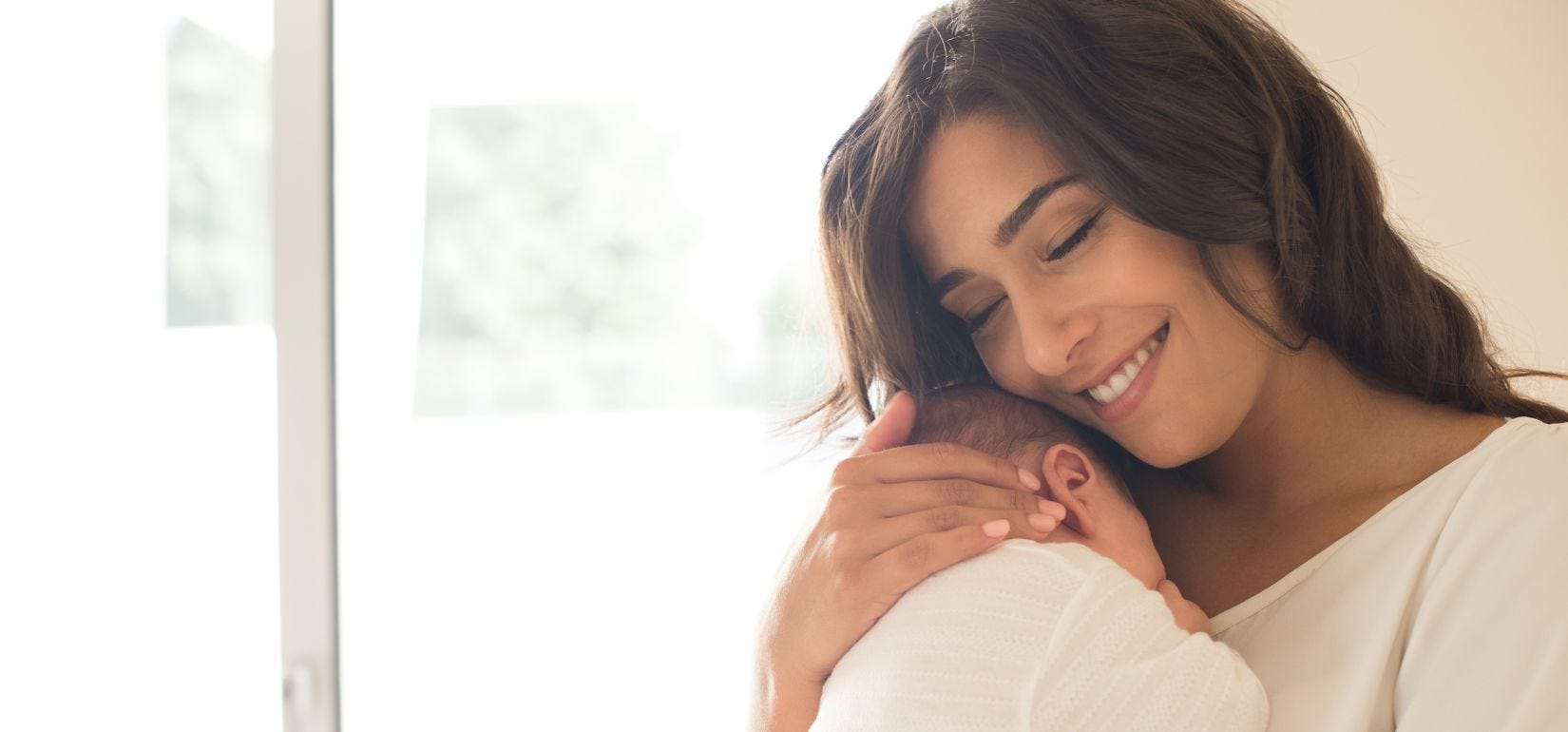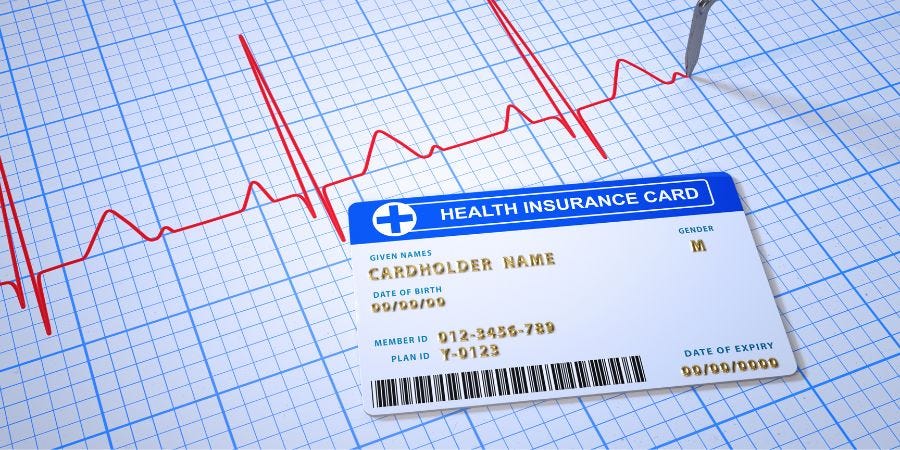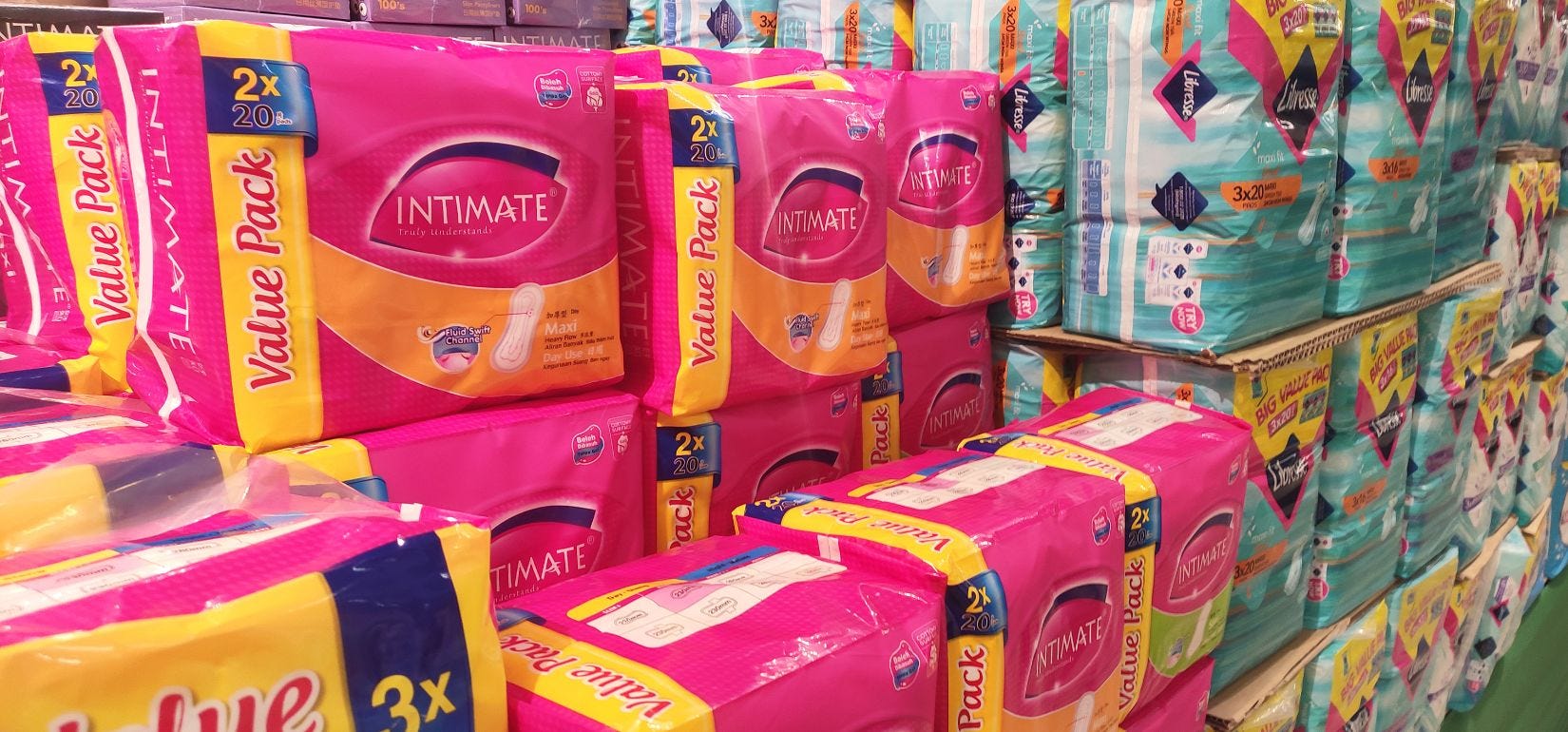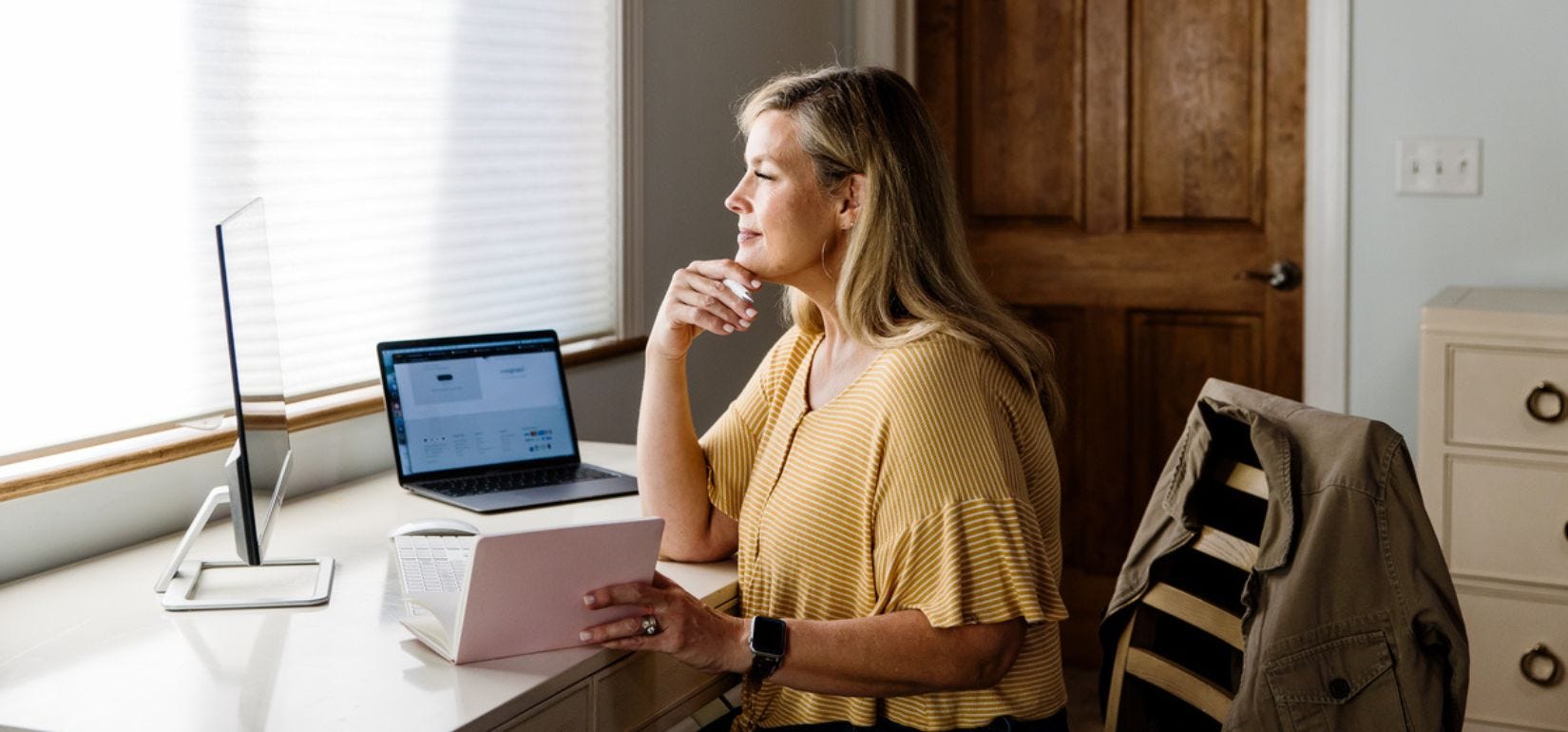Key Takeaways:
- A new survey from Aeroflow Urology reveals that a staggering 85% of mothers experience bladder leaks after childbirth, with many experiencing it daily or weekly.
- 71% of mothers reported feeling anxious, stressed, or self-conscious due to postpartum incontinence. But there IS help available, including potential access to free bladder control supplies through Aeroflow Urology.
- Women's bladder control supplies, Kegel exercises, and medications can help you manage postpartum incontinence.
Motherhood is often painted in soft hues, filled with the tender moments of bonding with your newborn. But what about the less glamorous side that creates anxieties about unexpected changes in your body?
A new survey from Aeroflow Urology reveals that postpartum incontinence, those little leaks that can happen when you laugh, sneeze, or simply lift your baby, is a reality for a vast majority of new moms.
It's a topic often shrouded in silence, leaving many women feeling isolated and unsure where to turn.
This blog will illuminate the often unspoken challenges of postpartum incontinence, offer support, practical advice, and, most importantly, reassurance that you are not alone.
What Is Postpartum Incontinence?
The miracle of childbirth can do strange things to your body. As it prepares for birth, your organs adjust, and more pressure is placed on your bladder and pelvic floor muscles, which can cause them to weaken throughout pregnancy. Your hip joints also loosen, and your cervix stretches.
As your baby passes through the vaginal canal during vaginal delivery, your pelvic muscles, bones, and ligaments stretch. Although many say it takes six weeks to recover after giving birth, it can actually take six to 12 months for your body to fully recover.
During those six to 12 months of recovery, your body continues to experience hormonal changes that affect your bladder. As your uterus contracts back to its original size, it can place extra pressure on your bladder.
All of this pressure and stretching before, during, and after vaginal birth means your weakened pelvic muscles may be unable to contract to hold or stop urine from leaking out. As a result, you may experience a loss of bladder control and leakage when you lift heavy objects, sneeze, laugh, or exercise.
This is known as stress urinary incontinence, as leakage occurs when the bladder is "stressed." Stress incontinence is prevalent, affecting about seven million new mothers in the US. Even low-stress deliveries and c-sections (cesarean sections) lead to incontinence in up to 50% of women. But remember, just because something is common does not mean it is normal!
Check your coverage for 100% free incontinence products now!
Check your coverage for 100% free incontinence products now!
Postpartum Incontinence Survey Findings
Aeroflow Urology's new survey reveals that many new mothers experience postpartum incontinence and that, shockingly, nearly 90% want more information about incontinence from their healthcare providers.
Key Findings:
- 85% of mothers experience frequent bladder leaks.
- 36% have daily bladder leakage, and 49% experience it weekly.
- 61% struggle with incontinence for over six months postpartum.
- 76% experience leaks during daily tasks like sneezing, chores, and laughing.
- Almost 50% leak during coughing and sneezing.
- 3 out of 4 moms find daily activities hindered by bladder leaks.
- 71% feel anxious, stressed, and self-conscious due to incontinence.
- Over 80% feel inadequately educated by healthcare providers.
- Less than 20% feel prepared for postpartum incontinence.
- 67% have missed activities with family and friends due to incontinence.
How Long Does Postpartum Incontinence Last?
Postpartum incontinence can last anywhere from months to years. One study of 307 women shows that nearly 30% experienced postpartum urinary incontinence up to four years after childbirth.
6 Ways to Manage Postpartum Urinary Incontinence After Childbirth
Several stress urinary incontinence treatment options can help you regain control of your bladder, but in some cases, it may take up to six months or longer to fully recover. However, you don't have to spend that entire time worrying about bladder leakage with these helpful tips.
1. Use Free Bladder Control Supplies
Bladder control supplies are used to absorb urine leakage. The type of incontinence product you'll need will depend on your level of leakage, but you may qualify to receive certain supplies through your Medicaid or other insurance plan. These include:
- Bladder control pads: Bladder control pads are very similar to menstrual pads, making them easy to change and carry with you.
- Women's pull-ons: Women's pull-ons (protective underwear) are discreet incontinence underwear with tab-style closures and can absorb more leakage than bladder control pads.
- Adult briefs: Adult briefs are typically unisex but are excellent choices for postpartum women experiencing heavy or overnight leakage.
- Underpads (chux): Underpads protect furniture, bedding, mattresses, and even car seats from heavy leakage.
On top of having high-quality bladder control products, you don't have to worry about the cost of these items, as they may be covered through insurance with Aeroflow Urology. We can provide support for all of your continence care needs. Simply use our secure Eligibility Form to check your coverage for free supplies, and we will take care of the rest so you can focus on your new baby.
2. Do Kegel Exercises at Home
When you're physically able, daily Kegel exercises can strengthen your pelvic floor muscles. You can perform pelvic floor exercises by squeezing and holding your pelvic muscles for about 10 seconds.
You can even get a personal trainer for your pelvic floor muscles. Pelvic floor physical therapists specialize in pelvic floor disorders, especially prenatal and postpartum. The American Physical Therapy Association (APTA) is an excellent resource for pelvic floor muscle training with a physical therapist.
3. Make Lifestyle Changes
You can make many small changes to your daily routine to relieve unwanted stress on the bladder.
- Clean up your diet. Eat healthy fruits and vegetables that are full of fiber. Avoid bladder irritants like coffee, caffeine, spicy foods, and refined sugar.
- Stay hydrated. Drink at least eight glasses of water daily to avoid urinary tract infections (UTIs) and dehydration.
- Keep weight within a healthy normal. We aren't suggesting you lose all of your baby weight right after you give birth, but try to return to a healthy weight, whatever that may look like for you, as this is another way to relieve pressure on your bladder.
- Limit abdominal pressure. Limiting pressure on your abdomen can also lessen the pressure on your bladder. This can decrease the amount of "stress" on the bladder, which can help prevent leakage.
- Avoid nicotine. Nicotine directly affects the muscles and lining of the bladder, and chronic coughing from smoking cigarettes can cause increased stress on the bladder, which can prolong the prevalence of incontinence symptoms.
4. Try Timed Voiding
Using the restroom every two to three hours is considered normal. If you have to go frequently, you can try bladder training or timed voiding techniques to regain the proper function of your bladder.
Use the bathroom every 30 minutes to an hour, then try to extend the time between urinations each day. Emptying your bladder before activities, including exercising, can also help limit leakage.
5. Speak With Your Healthcare Provider
If you're experiencing symptoms of stress incontinence, you should speak with your healthcare provider to rule out more severe conditions and causes to help develop an effective treatment plan. Seeing a pelvic floor physical therapist can also help you regain the strength of your pelvic floor muscles.
6. Ask About Medications & Devices
You may need temporary assistance from incontinence medication or support devices to help relax your bladder and control urine flow. Some devices, such as a pessary, can be placed in the vagina to support the bladder and rectum and help the bladder fully empty. This device can also be used to treat pelvic organ prolapse. Other devices like bladder slings may also be surgically inserted to treat incontinence symptoms.
In the meantime, try not to worry about a little loss of urine. With protective incontinence products, you can continue to enjoy bonding with your baby. After you've fully recovered from giving birth, speak with your healthcare provider about your urinary incontinence and begin taking steps to regain control of your bladder.
Managing Postpartum Incontinence With a Newborn
If you find yourself wanting to manage your stress incontinence or improve your pelvic floor strength after delivery but feel like you don't have the time with your new baby, try some of these tips.
Try Virtual Pelvic Floor Training
Can't leave the house to visit a pelvic floor therapist? Try an online therapist! Telehealth is making a significant impact in the healthcare industry, allowing people to have access to almost any type of appointment online through their computer or phone lenses.
Sign up for virtual pelvic floor therapy classes or find a private therapist online. This way, you won't have to take your newborn to your appointment or find a babysitter.
Do Sitting Exercises With Your Baby
Sitting exercises are great for the first four to six weeks postpartum. Here's how to do them:
- Sit on an exercise ball with your baby.
- Roll your hips to engage your core and strengthen your hips.
- While holding your baby, squeeze a ball between your knees.
Try Other Exercises With Your Baby
Sitting exercises aren't all you can do with your baby. You can do these other exercises during the day while your little one has some tummy time!
- Hip bridges.
- Clamshell exercises.
- Reverse clamshell exercises.
- Modified squats (only after four to six weeks when your uterus returns to its normal size).
- Yoga and stretching.
Use Your Baby for Exercise!
Another option is to lay on the ground, hold your baby in your hands, and use them as weights for chest-press-type exercises. This may sound odd, but it really works!
Join a Support Group
Many online support groups exist for new moms and people managing incontinence in local areas. A support group can help you in tough times when you can't get out of the house with your baby.
Sit Evenly When Feeding Your Baby
Don't lean too much to one side or cross your legs when you're feeding your baby. This can cause core and pelvis concerns. Try to sit on both sides evenly so your core can engage properly.
You're Not Alone: How Aeroflow Urology Can Help
The journey through postpartum incontinence can feel isolating. But amidst the whirlwind of new motherhood, remember this: You don't have to navigate this alone! Aeroflow Urology is dedicated to supporting moms like you on the path to recovery.
Free Bladder Control Supplies Through Insurance
One of the biggest hurdles for many women is the cost of managing incontinence. That's where Aeroflow Urology steps in. If you qualify, we can help you access high-quality bladder control supplies, like pads and protective underwear, at no cost to you through your insurance plan.
Whether you have Medicaid or private insurance, we'll handle the paperwork and ensure you receive discreet monthly deliveries of the products you need delivered to your door every month.
Check Your Eligibility
Discover the bladder control supplies covered by your Medicaid plan.
Resources & Support
Our commitment goes beyond providing products. We understand that postpartum incontinence affects more than just physical symptoms; it also affects emotional well-being. That's why we've launched our Postpartum Incontinence campaign, a dedicated resource hub filled with information, advice, and support for new moms.
Here's how Aeroflow Urology can make a difference:
- Fill out our Eligibility Form: Submit your insurance information to quickly determine if you qualify for free incontinence supplies through insurance.
- Explore our resources: Access articles, guides, and tips on managing postpartum incontinence on the Postpartum Incontinence campaign hub.
- Connect with our experts: Once you qualify with us, our Continuity Care Specialists are available to answer your questions and provide personalized support.
- Connect with us on social media: Our Adult Facebook Support Group and Instagram are excellent resources for connecting with others experiencing postpartum incontinence and easily accessing tips and advice on managing symptoms.
We know it can be tough to reach out for help, but taking that first step is often the hardest. Aeroflow Urology provides the support, resources, and supplies you need to regain control and confidence. You are not alone on this journey.
References
Incontinence After Childbirth | CU Urogynecology | Colorado. (n.d.). University of Colorado Urogynecology. https://urogyn.coloradowomenshealth.com/conditions/bladder/incontinence-after-childbirth.html
Fritel, X., Fauconnier, A., Levet, C., & Bénifla, J.-L. (2004). Stress urinary incontinence 4 years after the first delivery: a retrospective cohort survey. Acta Obstetricia et Gynecologica Scandinavica, 83(10), 941–945. https://doi.org/10.1111/j.0001-6349.2004.00457.x
American Physical Therapy Association. (2019). APTA. Apta.org. https://www.apta.org/
Disclaimer
Information provided on the Aeroflow Urology blog is not intended as a substitute for medical advice or care from a healthcare professional. Aeroflow recommends consulting your healthcare provider if you are experiencing medical issues relating to incontinence.












